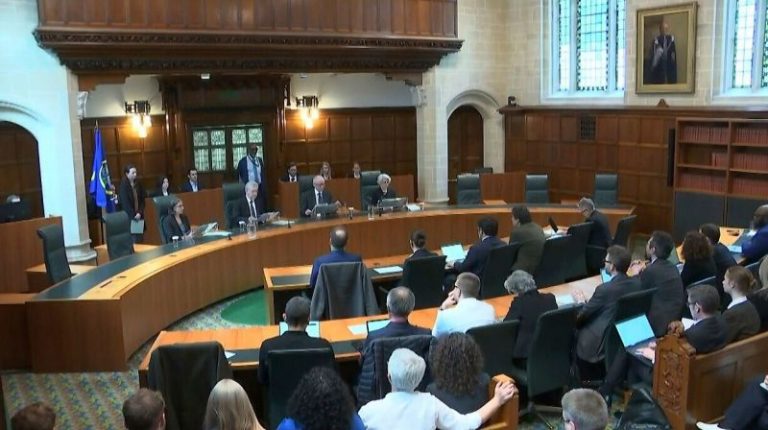The United Kingdom’s highest court ruled that the legal definition of “woman” excludes trans women, in a case with sweeping consequences for how equality laws are applied.
Britain’s Supreme Court ruled unanimously that the definition of a woman in equality legislation refers to “a biological woman and biological sex.”
The court was deciding on whether trans women with a gender recognition certificate (GRC) – which offers legal recognition of someone’s female sex – are protected from discrimination as a woman under the nation’s Equality Act 2010.
A group of campaigners in Scotland brought the challenge in 2018, arguing that those rights should only safeguard those assigned as women at birth. But the Scottish government said that a trans woman with a GRC is legally a woman and should therefore be afforded the same legal protections.
Even though the case draws from a debate over Scottish laws designed to increase the number of women sitting on boards, the outcome on Wednesday will shape the increasingly fractious and polarizing debate over transgender rights across the UK.
The UK’s ruling Labour party said the ruling brought “clarity” while the opposition Conservatives called it a “clear victory for common sense,” urging the government to clarify existing guidance.
Five judges overwhelmingly ruled in favor of For Women Scotland (FWS) – which proposed that not linking the legal definition of gender to biological sex would have repercussions on designated single-sex services, including changing rooms, hostels and communal accommodation.
“The terms woman and sex in the Equality Act 2010 refer to a biological woman and biological sex,” Lord Hodge told the court in London. “The provisions relating to sex discrimination can only be interpreted as referring to biological sex,” he added.
If transgender women with a GRC were afforded the same protected characteristic as biological women under the Equality Act, Hodge said, they would possess “greater rights than those who do not,” citing provisions relating to pregnancy and maternity leave.
The justice insisted that the court’s interpretation of the Equality Act 2010 “does not remove protection from trans people,” with or without a GRC document. A trans woman could claim discrimination on the grounds of gender reassignment, and because “she is perceived to be a woman,” added Hodge.
Britain’s government “has always supported the protection of single-sex spaces based on biological sex,” a spokesperson said, following the ruling.
“This ruling brings clarity and confidence, for women and service providers such as hospitals, refuges, and sports clubs,” the spokesperson added. “Single-sex spaces are protected in law and will always be protected by this Government.”
This is a developing story and will be updated.


